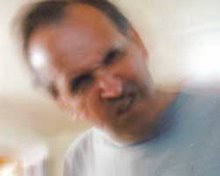Wednesday, July 22, 2009
You'll need a wagon too.
Posted by
Joe's History Barn
at
5:30 PM
0
comments
![]()
Labels: Current obsession-electricity.
Tuesday, July 21, 2009
Help I've fallen etc . .. .
Posted by
Joe's History Barn
at
5:49 PM
0
comments
![]()
Labels: Current obsession-electricity.
Thursday, July 16, 2009
Eggs over easy.
Posted by
Joe's History Barn
at
5:46 PM
0
comments
![]()
Labels: Current obsession-electricity.
Wednesday, July 15, 2009
Where's those garden lights.
Posted by
Joe's History Barn
at
6:17 PM
0
comments
![]()
Labels: Current obsession-electricity.
Tuesday, July 14, 2009
Welcome to Wardenclyffe Tower
I have kept a respectful distance from this man's history simply because there is so much to work with, that anything I try and add to the wealth of analysis already out there, well, maybe I'll just look a fool.
He is so damned interesting I just have to have quick stab at the subject.
I am talking about Nikola Tesla: engineer, inventor, philosopher. And he must have been fun to go to a restaurant with.
Born in 1856 in Serbia, his early years were fraught with many ups and downs, including several stabs at university and ongoing health issues. He was also beginning a pattern of frequent wild changes in direction. He disappeared for a while so convincingly friends thought him dead. After surfacing it was off to another university, only to quit in the first year when his father died.
He was now suffering from episodes of mental "flashes" where he claims he became overcome with the minute details of an engineering problem. These episodes would permit him to actually see the device in his mind and he could manipulate and "work" on assembling and modifying it.
Regardless, his engineering prowess was tangible and before leaving for the USA, was the head engineer for the country's telephone system.
After a stint in France he arrived at the door of Thomas Edison on June 6, 1884. And now begins the fun stuff. See you tomorrow. Gotta interact with my family.
Posted by
Joe's History Barn
at
6:00 PM
0
comments
![]()
Labels: Current obsession-electricity.
Thursday, July 9, 2009
Rope em pardner.
Posted by
Joe's History Barn
at
5:18 PM
0
comments
![]()
Labels: Current obsession-electricity.
Wednesday, July 8, 2009
Nice day for Paris
The Barn has been resting for a bit as I have been travelling again and spending time with my brother. So to catch up I usually do a good old what happened on this day, and wow, this time we have quite a crop.
On this day in 951, Paris was founded. Just how do you know when a city starts anyway?
In 1777, Vermont becomes the first state to abolish slavery. That's gotta feel good.
In 1885 the Liberty bell cracks, for the second time. They should have bought the extended warranty.
I an event heard around the world, Odore R Timby invents the rotating gun turret. The year in 1862. Hmmm, took that long?
On this day in 1932 the Dow Jones hits 41.22. That's gotta hurt.
In 1960, Havana's Sugar Kings are kicked out of Cuba and find a home in New Jersey.
And, born on this day in 1838 is Ferdinand Graf von Zeppelin. Again, lets see the warranty.
Fritz Perls was born this day in 1893. Everyone remembers him as the developer of Gestalt therapy. Be aware.
And finally, on this day in 1908, Louis Jordan was born.
Tomorrow, back to the zaps.
Posted by
Joe's History Barn
at
6:47 PM
0
comments
![]()
Labels: On this day.






